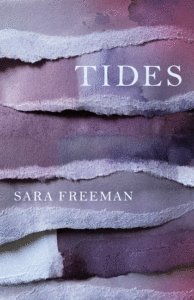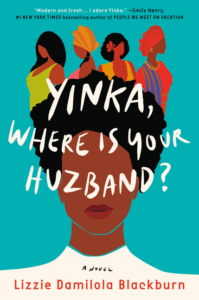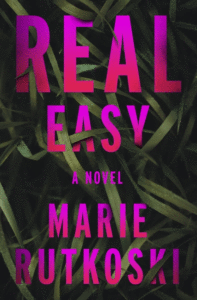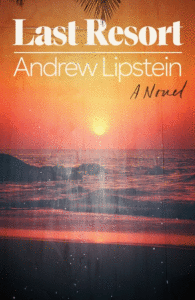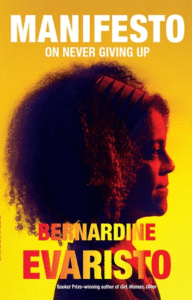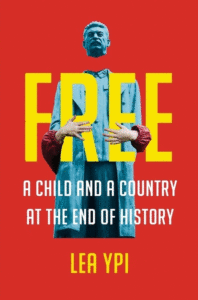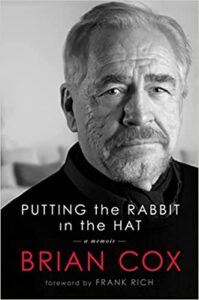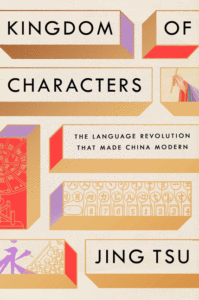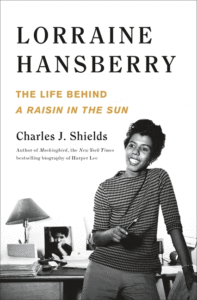
What Should You Read Next? Here Are the Best Reviewed Books of the Week
Featuring New Titles by Brian Cox, Bernardine Evaristo, Sequoia Nagamatsu, Lea Ypi, and More
Brian Cox’s Putting the Rabbit in the Hat, Bernardine Evaristo’s Manifesto, Sequoia Nagamatsu’s How High We Go in the Dark, and Lea Ypi’s Free all feature among the Best Reviewed Books of the Week.
Brought to you by Book Marks, Lit Hub’s “Rotten Tomatoes for books.”
*

1. How High We Go in the Dark by Sequoia Nagamatsu
(William Morrow)
9 Rave • 2 Positive • 1 Pan
Read an excerpt from How High We Go in the Dark here
“If you’re a short-story lover—as I am—you’ll be impressed with Nagamatsu’s meticulous craft. If you crave sustained character and plot arcs, well, you’ll have to settle for admiring the well-honed prose, poignant meditations and unique concepts. Hardly small pleasures … The reader might best approach the book like a melancholy Black Mirror season … This is a lovely though bleak book. Humanity has long turned to humor in our darkest moments, but levity feels absent even in a chapter narrated by a stand-up comedian. That said, the somber tone unifies the disparate characters and story lines … a welcome addition to a growing trend of what we might call the ‘speculative epic’: genre-bending novels that use a wide aperture to tackle large issues like climate change while jumping between characters, timelines and even narrative modes … Nagamatsu squarely hits both the ‘literary’ and ‘science fiction’ targets, offering psychological insights in lyrical prose while seriously exploring speculative conceits … a book of sorrow for the destruction we’re bringing on ourselves. Yet the novel reminds us there’s still hope in human connections, despite our sadness.”
–Lincoln Michel (The New York Times Book Review)
2. Tides by Sara Freeman
(Grove Press)
4 Rave • 4 Positive • 1 Mixed
Read Sara Freeman on the blurry boundaries of sibling intimacy here
“… sparse and unconventional … This pace is somewhat disquieting at first, though it eventually settles into a rhythm that feels like time itself … The beauty of Freeman’s prose lies as much in this unexpected cadence as in the contrast between beauty and harshness tucked into every page … In its poetic unfolding, Tidesreveals itself to be a stunning and revelatory tale of the dissolution of one woman’s life, her unexpected ties to the sea, and the many ways present selves are tied to their pasts … In this stunning debut novel, a woman’s life unravels, builds and unravels again across a series of sparse and staggering vignettes.”
–Kerry McHugh (Shelf Awareness)
3. Yinka, Where Is Your Huzband? by Lizzie Damilola Blackburn
(Pamela Norman)
3 Rave • 3 Positive
“If Lizzie Damilola Blackburn’s debut novel, Yinka, Where Is Your Huzband?, was to become a TV sitcom, it could run episode after episode, season after season, without losing steam on story material. Cheeky and entertaining, the novel, which spans just six months in the chaotic life of its British-Nigerian protagonist Yinka, packs in a whole lot of cross-cultural drama and social commentary with an easy-going, conversational style. Add romantic and professional mishaps, and complicated relationships among four Black women living in England, two of whom are Yinka’s cousins, and you have the makings of comedic gold. Don’t be fooled by the novel’s slow, somewhat clunky start … Blackburn offers insight into the way colorism and certain societal preferences for hair textures can affect women with darker skin and curlier hair … Perhaps one mark of a successful book, however crammed, is if the reader still wishes to know more about what happens in the main character’s life after a book ends—that is, as the story moves off the page. We may have to wait for that sitcom starring Blackburn’s Yinka.”
–Angela Ajayi (The Star Tribune)
4. Real Easy by Marie Rutkoski
(Henry Holt & Company)
4 Rave
“Solving the murder and disappearance remains at the forefront of Rutkoski’s novel, but it doesn’t overshadow the other plotlines … There are no easy conclusions to be drawn from Real Easy, no clear-cut progression of events that allows the crime to be pieced together, but the novel’s fast pace mitigates the frustration this may cause. Rutkoski’s handling of time is masterful, and not one moment fails to meet its potential … Rutkoski skillfully handles the complexity of a group of individuals whose stories are rarely told, let alone told with so much humanity imbued into every detail.”
–Jessie Cobbinah (BookPage)
5. Last Resort by Andrew Lipstein
(FSG)
1 Rave • 4 Positive • 1 Mixed
“If you’ve ever wondered where writers get their ideas from, Last Resort is wicked fun. If you’re a writer, Last Resort is heartburn in print. Splayed across these pages is the dark terror that lurks within any creative person’s breast: the embarrassing facts that might demolish the glorious claims made in the name of literary invention … As Lipstein skewers the pretensions and delusions of literary ambition, he reveals the mental tricks that allow writers to imagine that they care only for art, not money or fame. And he exposes the extent to which novelists will go to ignore, obscure and even deny their sources … expands into a deliciously absurd comedy about literary fame. This is Lipstein’s first novel, but he has somehow already acquired a bitterly accurate understanding of the tiny arena in which reviews, blurbs, book signings, Goodreads comments and puffy author profiles can coalesce to make a writer rich—or notorious … is ultimately about the difference between what we say we want and what we pursue at our own peril. And that’s a conflict any of us can relate to, even if we haven’t stolen a friend’s story—yet.”
–Ron Charles (The Washington Post)
**
1. Manifesto: On Never Giving Up by Bernardine Evaristo
(Grove Press)
10 Rave • 4 Positive
“Throughout, the book deftly combines the personal and the political … Intersectionality runs through this book like a quiet but mighty river. I particularly enjoyed the stories about the 1960s, 1970s and early 1980s, including the underground queer subculture. These are all influences that have shaped the course of Evaristo’s life and the depth of her literary vision … Diversity is treasured in this book but there is an equal emphasis on equality and inclusion…She does not shy away from difficult debates on who has the right to tell which story … a beautiful, thoughtful and honest book about never giving up, even when it feels like you are ‘writing into a void’. It is also a meditation on personal transformation, cultural inequalities, activism, belonging, love and friendships – and above all, the power of creativity.”
–Elif Shafak (The New Statesman)
2. Free: A Child and a Country at the End of History by Lea Ypi
(W. W. Norton & Company)
11 Rave • 2 Positive
Read an excerpt from Free here
“The book is packed with insights, on family as much as on politics. Ypi is a beautiful writer and a serious political thinker, and in just a couple hundred readable pages, she takes turns between being bitingly, if darkly, funny and truly profound … On one level, Free is a classic, moving coming-of-age story: A girl becomes a woman, a family struggles through hardship. The book’s intimacy comes in part from Ypi’s childhood diary, which she draws from to recount memories of classrooms and first crushes and teen angst. Her parents and the grandmother who helped raise her are her main characters, lovingly and vividly described. They have stuck with me. It helps that there’s a universality to the family.”
–Max Strasser (The New York Times Book Review)
3. Putting the Rabbit in the Hat by Brian Cox
(Grand Central)
4 Rave • 5 Positive • 1 Mixed
“Brian Cox has produced one of the funniest, most rip-roaring, irreverent and candid showbusiness memoirs this season, full of lively mockery … Cox has a wonderful eye and ear for the absurd … Cox’s book is like a transcription of a pub or after-dinner monologue: clever, perceptive, wandering back and forth chronologically … Cox hops from subject to subject, amplifying themes, picking up where he left off. There are lots of asides and digressions, as in the best talk. ‘We touched on it before’ is a typical phrase. It is loose, baggy, brilliant.”
–Roger Lewis (The Times)
4. Kingdom of Characters: The Language Revolution That Made China Modern by Jing Tsu
(Riverhead)
4 Rave • 4 Positive • 1 Mixed
“I was more than delighted to read Jing Tsu’s incredibly fascinating book … As Jing Tsu eloquently shows, from typewriters to telegrams to digitisation there has been a paradox at the centre of China’s infrastructure … Jing Tsu makes an important point that Chinese has a vast number of tonal variations and homophones. She quotes, brilliantly … The book would be dry if it were not for the cast of characters. We meet engineers, novelists, monks, rogues, brave librarians, imprisoned geniuses. It humanises what might seem like a fringe concern. It also gives the reader insight into the geopolitical dilemmas around what was once brush-marks on paper … Jing Tsu’s book may be as prophetic as it is historical.”
–Stuart Kelly (The Scotsman)
5. Lorraine Hansberry: The Life Behind a Raisin in the Sun by Charles J. Shields
(Henry Holt & Company)
4 Rave • 1 Positive • 1 Mixed
Read an excerpt from Lorraine Hansberry here
“… sparkling … Shields has carefully sifted through not only Hansberry’s play scripts but a wide array of her personal correspondence, allowing him to focus attention on aspects of the playwright’s life analyzed less rigorously in previous scholarship. The biographer’s framing of Hansberry’s life history within its historical context is one of the strongest features of the book … One of the most brilliant aspects of Shields’s study is its nuance, a tone that is possible primarily because of the author’s willingness to grapple with the inconsistencies and even contradictions he finds threaded through his subject’s life.”
–Hannah Joyner (The Chicago Review of Books)
Book Marks
Visit Book Marks, Lit Hub's home for book reviews, at https://bookmarks.reviews/ or on social media at @bookmarksreads.










